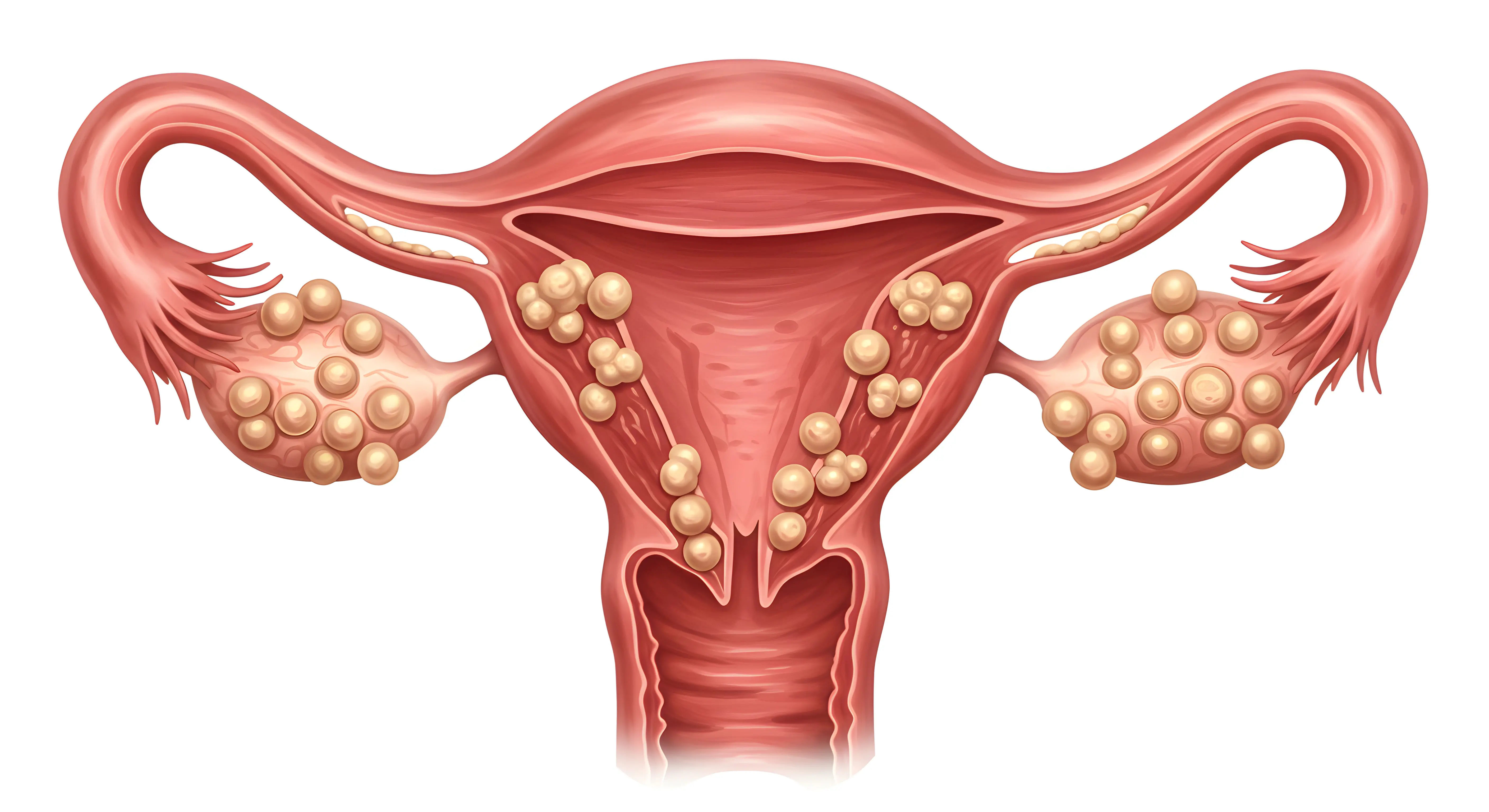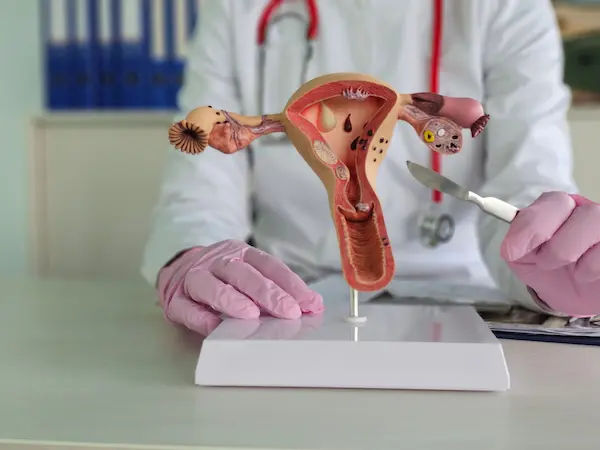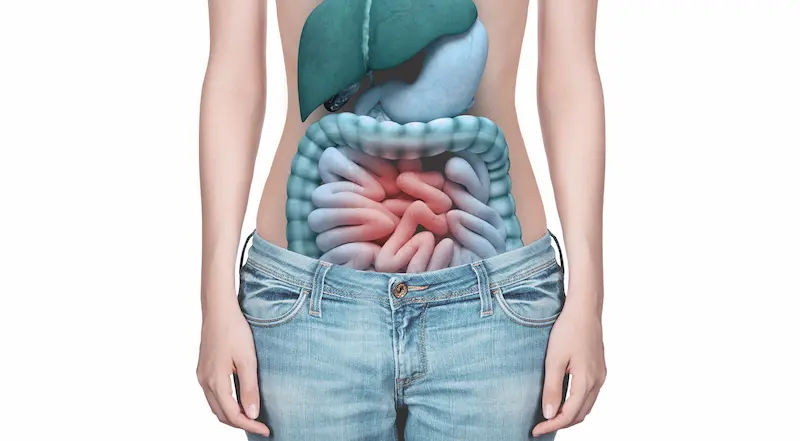Guide to Endometriosis And Infertility Know How Ivf Helps
Unravel the link between endometriosis and infertility. This comprehensive guide explains how IVF can be a highly effective treatment option to help you conceive.

Written by Dr. J T Hema Pratima
Reviewed by Dr. Shaik Abdul Kalam MD (Physician)
Last updated on 13th Jan, 2026
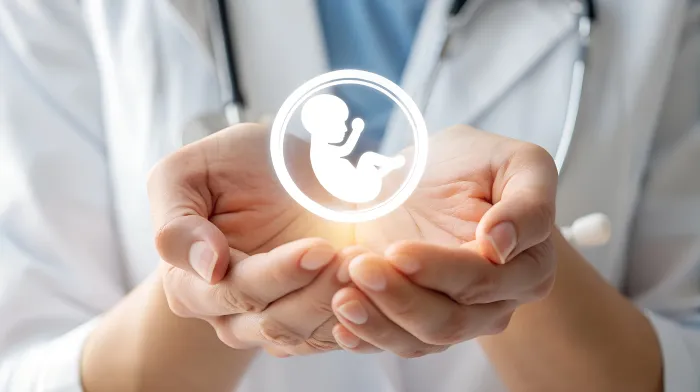
Introduction
For millions of women, endometriosis is more than just a source of debilitating pain—it's a significant roadblock on the path to motherhood. If you're struggling to conceive and suspect or know you have endometriosis, you're likely navigating a whirlwind of questions and emotions. How does this condition actually affect fertility? What are your options? And most importantly, can treatments like In Vitro Fertilization (IVF) offer a solution? This guide is designed to answer those questions clearly and compassionately. We will delve into the complex relationship between endometriosis and infertility, demystify the IVF process, and explain how this advanced reproductive technology can help you bypass the biological challenges posed by the condition. Our goal is to empower you with knowledge, offering hope and a clear understanding of your potential pathways to building the family you dream of.
What is Endometriosis? Beyond "Bad Periods"
Endometriosis is a chronic, often painful condition where tissue similar to the lining inside the uterus (the endometrium) grows outside of it. This tissue can be found on the ovaries, fallopian tubes, the outer surface of the uterus, and other organs within the pelvis. Unlike the uterine lining that sheds during your period, this misplaced tissue has no way to exit the body.
The Basics of Endometrial Tissue
This rogue tissue acts as it would inside the uterus—it thickens, breaks down, and bleeds with each menstrual cycle. However, because it's trapped inside your body, it causes inflammation, scarring, and the formation of adhesions (bands of fibrous tissue that can cause pelvic organs to stick together). This process is the primary source of the pain associated with endometriosis, which is often severe and much more intense than typical menstrual cramps.
Stages of Endometriosis: From Minimal to Severe
Endometriosis is classified into four stages based on the location, amount, depth, and size of the endometrial tissue:
• Stage I (Minimal): Small, isolated implants with minimal scar tissue.
• Stage II (Mild): More implants, but still superficial.
• Stage III (Moderate): Deep implants, potentially with endometriomas (chocolate cysts on the ovaries) and more adhesions.
• Stage IV (Severe): Widespread deep implants, large endometriomas, and dense adhesions.
It's crucial to note that the stage of endometriosis does not always correlate with pain levels or the degree of infertility. A woman with Stage I can experience severe pain and infertility, while someone with Stage IV might have few symptoms.
Consult Top Specialists
The Direct Link: How Endometriosis Causes Infertility
Understanding how endometriosis impacts fertility is key to choosing the right treatment. The mechanisms are multifaceted.
Physical Barriers: Scar Tissue and Adhesions
Endometriosis can cause significant pelvic adhesions. These can:
Block fallopian tubes, preventing the egg and sperm from meeting.
Distort pelvic anatomy, enveloping ovaries or pulling them out of position, which can interfere with the egg's release and journey.
Create a general "sticky" environment that impedes the normal movement of the reproductive organs.
The Hostile Environment: Inflammation and Toxicity
1. The chronic inflammation caused by endometriosis creates a hostile environment for conception and implantation.
2. Inflammatory chemicals can be toxic to both sperm and eggs, reducing their viability.
3. The immune system may be altered, potentially attacking sperm or interfering with embryo implantation.
4. The lining of the uterus (endometrium) may not develop properly, making it less receptive to an embryo.
Impact on Egg Quality and Ovarian Reserve
Endometriomas (cysts on the ovaries) can damage the ovarian cortex where eggs are stored. The inflammatory environment can also negatively affect the development and quality of eggs. Furthermore, surgeries to remove endometriomas, while sometimes necessary, can inadvertently remove healthy ovarian tissue, potentially reducing a woman's ovarian reserve.
How In Vitro Fertilization (IVF) Helps Overcome Endometriosis?
IVF is often the most effective treatment for endometriosis-related infertility because it addresses the core problems head-on.
Bypassing the Fallopian Tubes
For women with blocked or damaged tubes due to adhesions, IVF is a direct solution. The process involves retrieving eggs directly from the ovaries, fertilizing them with sperm in a lab, and then transferring the resulting embryo(s) directly into the uterus. This completely bypasses the need for functional fallopian tubes.
Controlling the Inflammatory Environment
One of the key advantages of IVF is the ability to control the environment in which fertilization and early embryo development occur. This happens in the pristine, controlled conditions of an embryology lab, far away from the inflammatory pelvic environment caused by endometriosis.
Specialized IVF Protocols for Endometriosis Patients
Many fertility specialists use specific protocols for patients with endometriosis. A common approach is long down-regulation with GnRH agonists (e.g., Lupron). This protocol suppresses the hormonal cycle for several months before starting IVF medications. The theory is that this suppression "quiets" the endometriosis, reduces inflammation, and may lead to a more receptive uterine lining and better implantation rates during the embryo transfer. If you are exploring these specialized protocols, consulting a reproductive endocrinologist is essential to determine the best plan for you.
Success Rates of IVF with Endometriosis
While endometriosis can impact IVF success, many women with the condition achieve successful pregnancies. Success rates depend on several factors.
Factors That Influence Your IVF Success
• Age: This is the single most important factor for IVF success, regardless of an endometriosis diagnosis.
• Ovarian Reserve: Your current egg supply, measured by tests like AMH and AFC.
• Sperm Quality: The health of the partner's or donor's sperm.
• Stage of Endometriosis: Severe stages may require more aggressive treatment but can still be successful.
• Presence of Endometriomas: These cysts can make egg retrieval more challenging and may affect ovarian response.
The Role of Preimplantation Genetic Testing (PGT)
For some patients, especially those with recurrent implantation failure or of advanced maternal age, Preimplantation Genetic Testing for Aneuploidy (PGT-A) can be beneficial. This test screens embryos for chromosomal abnormalities before transfer. By selecting a chromosomally normal embryo, the chances of successful implantation and a healthy pregnancy increase while the risk of miscarriage decreases.
Consult Top Specialists
Conclusion
A journey with endometriosis and infertility is undeniably challenging, but it's important to remember that you are not powerless. Knowledge is your greatest ally. Understanding how endometriosis affects your body and the reproductive options available, particularly the strategic role of IVF, can transform a feeling of hopelessness into a clear, actionable plan. While the path may require resilience and the support of a skilled medical team, the goal of parenthood is within reach for countless women facing this diagnosis.
If you suspect endometriosis is impacting your fertility, the most critical step is to seek expert guidance. Consulting a gynecologist or a reproductive endocrinologist can provide a proper diagnosis and a personalized treatment plan tailored to your unique situation.* If your symptoms persist or you have been trying to conceive without success, booking a consultation with a specialist, for instance through a platform like Apollo24|7, can be a convenient first step to get the expert advice you need. Remember, taking that first step towards understanding and action is a powerful move toward building the family you desire.
Consult Top Specialists

Dr. Rajib Ghose
General Physician/ Internal Medicine Specialist
25 Years • MBBS
East Midnapore
VIVEKANANDA SEBA SADAN, East Midnapore

Dr. Chethan T L
General Physician/ Internal Medicine Specialist
5 Years • MBBS, MD, DNB (General Medicine)
Bengaluru
Apollo Medical Center, Marathahalli, Bengaluru

Dr Vinay Kumar A V
Nephrologist
8 Years • MBBS, MD - General Medicine, DM - Nephrology
Bilaspur
Apollo Hospitals Seepat Road, Bilaspur
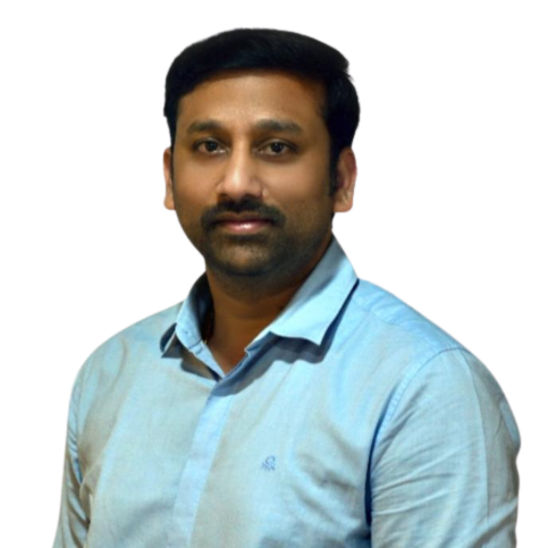
Dr. Madhusudhan Reddy L
General Physician/ Internal Medicine Specialist
11 Years • M.B.B.S, M.D (General medicine)
Hyderabad
Apollo Hospitals Jubilee Hills, Hyderabad
(100+ Patients)
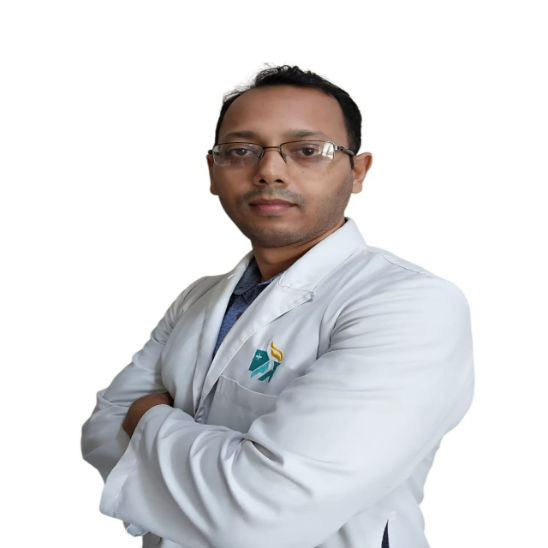
Dr. Indrajit Das
General Physician/ Internal Medicine Specialist
4 Years • "MD (Internal medicine) : Gauhati Medical College and Hospital, Guwahati (2018-2021) MD (Pathology) : Gauhati Medical College and Hospital, Guwahati (2012-2015) MBBS (Bachelor of Medicine, Bachelor of Surgery) : Silchar Medical College, Assam (2003-2008) "
Guwahati
Apollo Excelcare Hospital, Guwahati
Consult Top Specialists

Dr. Rajib Ghose
General Physician/ Internal Medicine Specialist
25 Years • MBBS
East Midnapore
VIVEKANANDA SEBA SADAN, East Midnapore

Dr. Chethan T L
General Physician/ Internal Medicine Specialist
5 Years • MBBS, MD, DNB (General Medicine)
Bengaluru
Apollo Medical Center, Marathahalli, Bengaluru

Dr Vinay Kumar A V
Nephrologist
8 Years • MBBS, MD - General Medicine, DM - Nephrology
Bilaspur
Apollo Hospitals Seepat Road, Bilaspur

Dr. Madhusudhan Reddy L
General Physician/ Internal Medicine Specialist
11 Years • M.B.B.S, M.D (General medicine)
Hyderabad
Apollo Hospitals Jubilee Hills, Hyderabad
(100+ Patients)

Dr. Indrajit Das
General Physician/ Internal Medicine Specialist
4 Years • "MD (Internal medicine) : Gauhati Medical College and Hospital, Guwahati (2018-2021) MD (Pathology) : Gauhati Medical College and Hospital, Guwahati (2012-2015) MBBS (Bachelor of Medicine, Bachelor of Surgery) : Silchar Medical College, Assam (2003-2008) "
Guwahati
Apollo Excelcare Hospital, Guwahati
More articles from Endometriosis
Frequently Asked Questions
1. Can I get pregnant naturally if I have endometriosis?
Yes, it is possible, especially with milder stages. However, the probability is lower than for women without the condition. Many women pursue fertility treatments like ovulation induction/IUI or IVF to increase their chances.
2. Should I have laparoscopic surgery before trying IVF?
This is a nuanced decision. Surgery can improve natural conception chances and aid in IVF for some by removing large endometriomas or restoring anatomy. However, it may not be necessary for everyone and could potentially harm ovarian reserve. This decision must be made in close consultation with your fertility specialist and surgeon.
3. Does endometriosis affect IVF success rates?
Studies show that women with endometriosis may have slightly lower success rates per IVF cycle compared to those with tubal factor infertility, largely due to issues with egg quality and implantation. However, cumulative success rates over multiple cycles are often very good.
4. What is the best IVF protocol for someone with endometriosis?
There is no one-size-fits-all protocol. The 'long agonist protocol' is commonly used because it helps suppress the disease. Your doctor will choose a protocol based on your age, ovarian reserve, and the specific characteristics of your endometriosis.
5. How long should I try to conceive naturally before seeking help if I have endometriosis?
The general rule of trying for a year (or six months if you're over 35) is often shortened for women with a known history of endometriosis or significant symptoms. If you have endometriosis and are trying to conceive, it's wise to consult a specialist early to discuss a timeline and plan.

